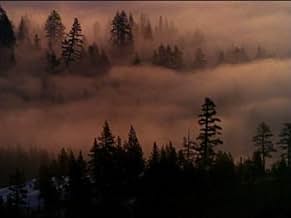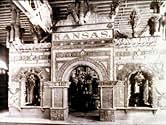The West
- Minissérie de televisão
- 1996
- 1 h
AVALIAÇÃO DA IMDb
8,4/10
2,3 mil
SUA AVALIAÇÃO
Adicionar um enredo no seu idiomaStephen Ives' "The West" is a PBS 4-Video Series co-produced by Ken Burns: - "Death Runs Riot" 85 min. - "Fight No More Forever" 85 min. - "Ghost Dance" 58 min. - "The People" 82 min.Stephen Ives' "The West" is a PBS 4-Video Series co-produced by Ken Burns: - "Death Runs Riot" 85 min. - "Fight No More Forever" 85 min. - "Ghost Dance" 58 min. - "The People" 82 min.Stephen Ives' "The West" is a PBS 4-Video Series co-produced by Ken Burns: - "Death Runs Riot" 85 min. - "Fight No More Forever" 85 min. - "Ghost Dance" 58 min. - "The People" 82 min.
- Prêmios
- 1 vitória e 2 indicações no total
Explorar episódios
Avaliações em destaque
I am a huge fan of the West so watching a docu-series by Ken Burns on the West was a must for me and he delivered. High quality content and excellent narrating from Peter Coyote!
I had looked forward to the series as coming from a master of the documentary form. After all, Burns set in motion several documentary devices that have been widely copied since, such as first-person voice-over narration and having the narrator sign off each spoken part with his or her name. The Civil War series was truly an achievement.
This thing, however--
It amounts to a chapters-long indictment of Europeans that verges on racism. It emerges after a while that the only good whites are dead whites. It's true that there was much brutality in white settlement of the west, and that horrible crimes were committed, usually unthinkingly, and many of them by whites. But is there really nothing more to the story than white-folks-bad/red-folks good? With a little effort, Ken Burns might have found, oh, I don't know, at least one good white person. Or, rather, one good white person who wasn't immediately tarred and feathered by his redneck fellows.
It's as if you were to tell the story of World War II and focus on nothing but the fact that the American armed forces were rigidly segregated at the time. Oh, wait, that one's probably Ken Burns' next.
This thing, however--
It amounts to a chapters-long indictment of Europeans that verges on racism. It emerges after a while that the only good whites are dead whites. It's true that there was much brutality in white settlement of the west, and that horrible crimes were committed, usually unthinkingly, and many of them by whites. But is there really nothing more to the story than white-folks-bad/red-folks good? With a little effort, Ken Burns might have found, oh, I don't know, at least one good white person. Or, rather, one good white person who wasn't immediately tarred and feathered by his redneck fellows.
It's as if you were to tell the story of World War II and focus on nothing but the fact that the American armed forces were rigidly segregated at the time. Oh, wait, that one's probably Ken Burns' next.
Burns and Ives combine to produce a work that's very much up to Ken Burns' standards. As a viewing experience, it's everything you'd expect.
And then there's the content.
Much has been made about the supposed bias of Burns' presentation of the history of the west. A lot of time was spent on the way the US treated the indigenous populations, on the crimes of the US military, on the theft of lands, and the systematic attempts to eradicate native cultures. The loss of the age before white settlement is lamented.
Is this a balanced perspective? Maybe not, although I don't think it's as biased as other reviews would have you believe. The triumphs of the west are told as well as the losses. Not all whites are painted as evil, nor are all natives painted as innocent. Events are often just told as they happened, and the viewer is left to draw their own conclusions. A lot of the content doesn't concern native Americans at all.
More important that all of that, however, is that it's a story that needs telling. Americans have been indoctrinated with romantic fictions about the west for over a century. Giving Burns a chance to tell the other side of the story doesn't seem too much to ask. A few Hollywood movies that paint the indigenous people of America before westward expansion as noble savages - also a pleasant fiction, incidentally - does not make up for a century of bias, misinformation, and outright lies taught to American schoolchildren. What's worse is that for the most part, these fictions are still taught to American schoolchildren.
At nearly nine hours, The West is an experience that will take up several of your evenings, but it's nine hours that may change the way you think about American history.
And then there's the content.
Much has been made about the supposed bias of Burns' presentation of the history of the west. A lot of time was spent on the way the US treated the indigenous populations, on the crimes of the US military, on the theft of lands, and the systematic attempts to eradicate native cultures. The loss of the age before white settlement is lamented.
Is this a balanced perspective? Maybe not, although I don't think it's as biased as other reviews would have you believe. The triumphs of the west are told as well as the losses. Not all whites are painted as evil, nor are all natives painted as innocent. Events are often just told as they happened, and the viewer is left to draw their own conclusions. A lot of the content doesn't concern native Americans at all.
More important that all of that, however, is that it's a story that needs telling. Americans have been indoctrinated with romantic fictions about the west for over a century. Giving Burns a chance to tell the other side of the story doesn't seem too much to ask. A few Hollywood movies that paint the indigenous people of America before westward expansion as noble savages - also a pleasant fiction, incidentally - does not make up for a century of bias, misinformation, and outright lies taught to American schoolchildren. What's worse is that for the most part, these fictions are still taught to American schoolchildren.
At nearly nine hours, The West is an experience that will take up several of your evenings, but it's nine hours that may change the way you think about American history.
This documentary directed by Steven Ives (not Ken Burns, as several of the reviews in this thread inaccurately state) is a sweeping epic that showcases the salient moments in the settlement of the American West. Using historical documents, academic narratives, scenes of stunning natural beauty, and original photos and documents, "The West" is a gripping and historically accurate overview of this great (and, at times, terrible) period in American history.
The reviews that complain that this series is somehow anti-American suffer from two flaws. The first is selection bias. Parts of "The West" feature cruelty and brutality, usually at the hands of white settlers. But to focus on this as the only distinguishing feature of the film ignores the numerous instances in which white people--e.g., Sam Houston, Brigham Young, Joseph Meek, just to take a few--are portrayed quite deservingly as heroes. Nor are all Native Americans portrayed in a positive light; the film also makes the point that the Lakota Sioux's claims to the Black Hills territory as their ancestral lands are somewhat ironic because the Lakota conquered the Kiowa and other tribes, driving them out of that area in conquests very similar to the Americans' accession of the West.
The second error is simple oversensitivity. The history of the West is both a great and terrible story. It's great because it epitomizes the expansive American spirit that binds us together as a nation. It's terrible because in acquiring the West, we (Americans, that is) more or less decimated an entire people. I think those who refer to this process as genocidal are wrong, but not by much. The history of the West is thus not a story of good or evil, but a story of both, and the film "The West" shows this dialectic unflinchingly. If you have too delicate a constitution to accept that brutality and suffering are the flip side of manifest destiny's glory, you should not watch this documentary. "The West" does not seek to spare anyone's feelings, but rather only to tell the truth about this period in all its great and awful reality.
The reviews that complain that this series is somehow anti-American suffer from two flaws. The first is selection bias. Parts of "The West" feature cruelty and brutality, usually at the hands of white settlers. But to focus on this as the only distinguishing feature of the film ignores the numerous instances in which white people--e.g., Sam Houston, Brigham Young, Joseph Meek, just to take a few--are portrayed quite deservingly as heroes. Nor are all Native Americans portrayed in a positive light; the film also makes the point that the Lakota Sioux's claims to the Black Hills territory as their ancestral lands are somewhat ironic because the Lakota conquered the Kiowa and other tribes, driving them out of that area in conquests very similar to the Americans' accession of the West.
The second error is simple oversensitivity. The history of the West is both a great and terrible story. It's great because it epitomizes the expansive American spirit that binds us together as a nation. It's terrible because in acquiring the West, we (Americans, that is) more or less decimated an entire people. I think those who refer to this process as genocidal are wrong, but not by much. The history of the West is thus not a story of good or evil, but a story of both, and the film "The West" shows this dialectic unflinchingly. If you have too delicate a constitution to accept that brutality and suffering are the flip side of manifest destiny's glory, you should not watch this documentary. "The West" does not seek to spare anyone's feelings, but rather only to tell the truth about this period in all its great and awful reality.
10AlexMI
Unique, amazing, massive project thoroughly documenting the expansion of the United States into the vast territories of the American WEST. Brutally honest, sympathetic insight into the fall of the many Native American peoples... some of the material is painful, sometimes bleak, but an absolute MUST SEE for any feeling person with even a passing interest in the history of America. Outstanding photography and the classic Ken Burns look & feel (executive & senior producer), but with director Stephen Ives' own insightful point-of-view. This series ranks right along side Burns' "Civil War" in scope and depth, IMHO. See it anyway you can, then demand the set on DVD! (DVD not available at this writing).
Principais escolhas
Faça login para avaliar e ver a lista de recomendações personalizadas
- How many seasons does The West have?Fornecido pela Alexa
Detalhes
- Data de lançamento
- País de origem
- Central de atendimento oficial
- Idioma
- Também conhecido como
- Запад
- Locações de filme
- Empresas de produção
- Consulte mais créditos da empresa na IMDbPro
- Tempo de duração
- 1 h(60 min)
- Cor
- Mixagem de som
- Proporção
- 4:3
Contribua para esta página
Sugerir uma alteração ou adicionar conteúdo ausente



































